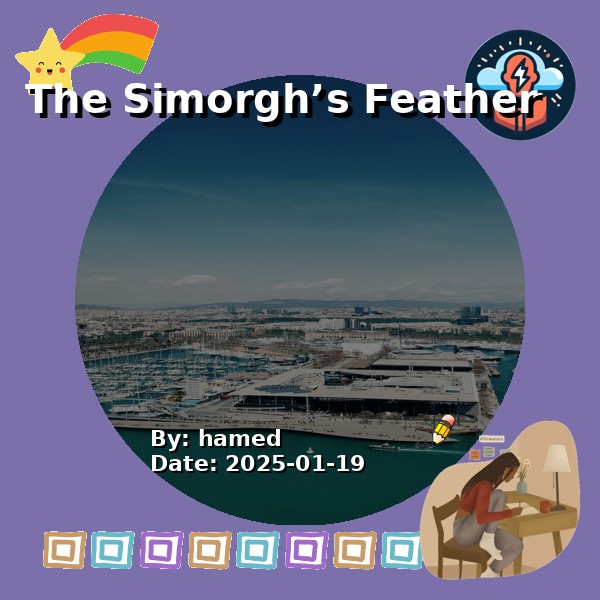Arya sat in his cramped studio apartment, staring at the blank canvas that mocked him from across the room. A half-empty cup of cold tea sat beside crumpled sketches and a paintbrush caked with dried blue paint. For months, the ideas had stopped coming. He felt hollow, like a bird with clipped wings.
"Why bother?" he muttered, slumping back into his chair. He hadn’t sold a painting in over a year. His dreams of exhibitions and acclaim felt as distant as the stars he used to paint in his childhood landscapes.
That night, as he lay in bed tossing and turning, a sharp sound startled him awake. The clink of glass breaking. Arya sat up, heart pounding, and turned on the dim bedside lamp. The window was open, though he was sure he had closed it.
On the floor lay a feather.
It shimmered faintly in the light, shifting colors like the surface of an opal. Gold, green, blue—each hue seemed alive, dancing and rippling. Arya hesitated before picking it up. It felt warm to the touch, almost alive.
He didn’t know what possessed him, but he grabbed his brush, his paints, and the nearest blank canvas. The feather pulsed in his hand, and as if guided by an unseen force, his brush moved.
Shapes and colors poured from his mind—mountains, deserts, rivers flowing like veins of molten silver. At the center of it all, a great bird stretched its wings, feathers ablaze with light. It was the Simorgh, the legendary bird of Persian lore, the one who held all the wisdom of the world.
By dawn, the painting was finished. Arya stared at it, breathless. He had never created anything so vivid, so alive. The Simorgh’s eyes seemed to follow him, brimming with unspoken truths.
The painting sold within days, catapulting Arya into the spotlight. Commissions poured in, galleries begged for his work, and critics hailed him as a visionary. But the feather remained with him. Each night, it whispered to him, urging him to create. Each stroke of his brush felt like a revelation, but the more he painted, the more restless he became.
The whispers turned into demands. "Paint me again," the feather seemed to say. "Show them what they cannot see."
Arya began losing sleep. His dreams were filled with wings, fire, and a thousand mirrored faces staring back at him. He painted feverishly, his works growing darker and more intricate. People adored them, but Arya felt trapped. He no longer knew if the ideas were his or the feather’s.
One night, unable to bear it any longer, Arya climbed to the rooftop of his building. The feather was clutched tightly in his hand. “What do you want from me?” he shouted into the night.
The wind howled, and suddenly, he felt a presence behind him. Turning, he saw the Simorgh—not as a painting, but as a living, breathing being. It towered above him, its feathers glowing with the light of a thousand suns.
"You sought inspiration," the Simorgh said, its voice a chorus of many. "But true creation is not born of chaos or fear. It is born of the journey to find yourself."
Arya held out the feather. “Take it back. I don’t want it anymore.”
The Simorgh tilted its head. “The feather was never mine. It was always yours.”
With that, the bird vanished, leaving Arya alone on the rooftop.
He looked at the feather in his hand, now dull and lifeless. Slowly, he let it slip from his fingers. It fluttered away, disappearing into the night.
In the weeks that followed, Arya painted again—not for fame or approval, but for himself. His new works were quieter, more honest. He no longer felt the feather’s pull, but he carried its lesson in his heart.
The Simorgh had shown him the truth: to find oneself is the hardest journey of all, but the only one worth taking.
